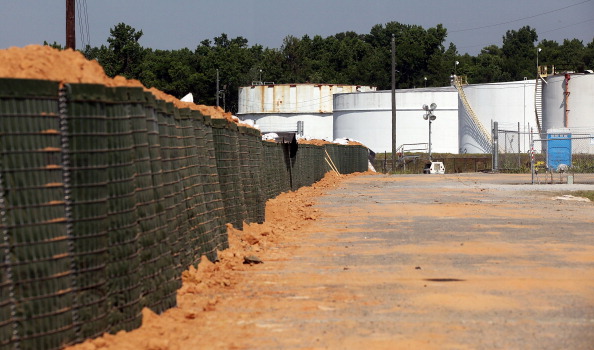Another benefit of America’s energy renaissance is seen in the competitive edge North American refiners are gaining because of lower feedstock costs, resulting from surging domestic crude oil and natural gas production.
The latest “This Week in Petroleum” report by the U.S. Energy Information Administration (EIA) says that U.S. and Canadian refiners are in a stronger position relative to European counterparts because of lower costs for domestic crude oil and natural gas, from which they make a variety of value-added finished products.
EIA reports it analyzed 13 companies based in North America and 13 in Europe. Ten had nearly all their refinery throughput in North America, 10 others have nearly all of theirs in Europe and the rest have refineries throughout the world. North American refiners have gained an edge the past three years, according to the agency. EIA:
… as the global economy recovered after 2010, many North American refineries benefited from relatively lower prices for two key inputs, crude oil and natural gas. Increasing production of both crude oil and natural gas contributed to lower feedstock costs in North America compared to international prices.
What we’re seeing is available, affordable energy from shale – produced via advanced hydraulic fracturing and horizontal drilling – playing a major role in lowering North American refiners’ costs. Lower costs mean finished products that are more market competitive, boosting exports. EIA:
particularly from the U.S. Gulf Coast. As U.S. refineries increased runs to produce distillate, they also produced more gasoline and have taken some market share from Europe in Latin American and West African markets.
This is good news for the refining sector and the larger economy. At a minimum it means support for good-paying jobs in that sector, but it also could be impetus for new job creation. Indeed, that’s why we’ve made the case that the export of finished products is a net plus for the United States and especially refiners.
So, let’s keep the energy revolution going – by increasing access to domestic reserves and by taking a common-sense approach to regulation. Unfortunately, EPA this week proposed a new rule on refinery air emissions that could increase costs while providing uncertain environmental benefits. Howard Feldman, API’s director of regulatory and scientific affairs:
“With this proposal, EPA adds to the list of new regulations impacting refineries that come with enormous costs but questionable environmental benefits. This rule is intended to evaluate what risk, if any, is posed to the public from refinery emissions. But EPA has already concluded the risks associated with refinery emissions are low, and the public is protected with an ample margin of safety. America’s refineries have been reducing emissions for decades and will continue reducing emissions under existing regulations while making the cleanest fuels and helping to improve air quality.”
Such an approach could increase costs for an important industrial sector and reduce U.S. refiners’ competitiveness in the global marketplace.
By Mark Green
Originally posted May 15th, 2014
Energy Tomorrow is brought to you by the American Petroleum Institute (API), which is the only national trade association that represents all aspects of America’s oil and natural gas industry. Our more than 500 corporate members, from the largest major oil company to the smallest of independents, come from all segments of the industry. They are producers, refiners, suppliers, pipeline operators and marine transporters, as well as service and supply companies that support all segments of the industry

